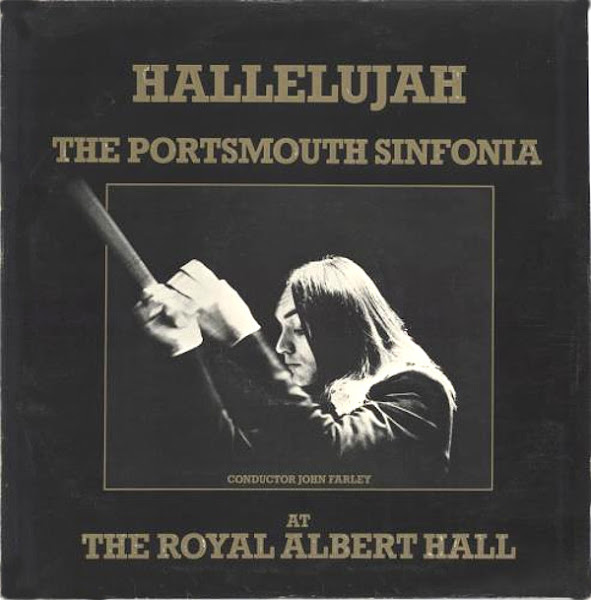When classical musicians fought against tuxedo fascism

In the late 1960s artist Tom Philips was also known for his music activities. These included compositions performed by pianist John Tilbury, and he also played in the Portsmouth Sinfonia and Cornelius Cardew's Scratch Orchestra. The Portsmouth Sinfonia was inspired by Cardew's Scratch Orchestra. It was formed in 1970 by a mischievous Gavin Bryars from staff and students at Portsmouth College of Art as a one-off ensemble to participate in a talent competition. But the Sinfonia took on a life of its own as a reaction against what its members termed 'tuxedo fascism'.
Ability and experience were not a criteria for playing in the Portsmouth Sinfonia, however attendance at rehearsals was mandatory and intentionally bad playing was not allowed. Early repertoire comprised classical warhorses such as The Blue Danube and Also Sprach Zarathustra. The Sinfonia went on to play at the Purcell Room, Festival Hall, and Albert Hall, and was rewarded with a recording contract; you can audition its distinctive sound via this link. Today the Portsmouth Sinfonia is usually remembered as a joke orchestra, but in a 1981 interview Sinfonia member Brian Eno provided a thought-provoking take on their role:
'Most people when they talk about the Sinfonia talk about it as though everybody in the orchestra was incompetent. This wasn't true, exactly. There was a range of competence, from extremely competent - we had some bona fide virtuosi in there [these included Michael Nyman] - to completely incompetent. What was interesting about it was this mix... You'd hear the melody of whatever it was, hidden somewhere among all those approximations of the melody. It was like a very blurry version, a soft-focused version, of classical music, and it produced some beautiful music.'
The Portsmouth Sinfonia is much more than an amusing footnote in the history of classical music. Tuxedos may be out of fashion in 2021. But tuxedo fascism has re-emerged with a vengeance - on Slipped Disc, in the Spectator, and among the country house opera groupies and champagne activists. Classical music is desperate to reach a new audience, but the rules for that outreach are dictated by the tuxedo fascists. This powerful group uses social media to pay lip service to the need for change in classical music, but believes the only acceptable change is their kind of change . Can you imagine the outcry from John Borslap and the others who live their lives on the comments pages of Slipped Disc if the Portsmouth Sinfonia reformed and was given a BBC Proms slot?
To reach a new audience classical music must think outside the boxes defined as 'right' by the music establishment. As John Beck of the University of Westminster explained, the Portsmouth Sinfonia was important because it explored questions of performance, collaboration and the relation between composition and contingency. Today the global pandemic has made concert halls a no-go zone for many. But who is questioning the relationship between performance and contingency? Who is challenging the go-to strategy of reinventing classical music as a virtual art form?
Today classical music is part of an instant gratification culture thanks to the dubious blessing of streaming. Only a performance polished to perfection using Pro Tools and approved by musically educated ears will suffice, and that performance must be available here - wherever that may be - and now. All of which makes the listener - new or old - bored, complacent and somnambulant. The Portsmouth Sinfonia provided a wake-up call to both a new audience and the classical establishment. Has it never occurred to anyone that classical music needs to stop sending its audience to sleep with yet more of the same? Has it never occurred to anyone that classical music needs to wake-up its new audience?









Comments